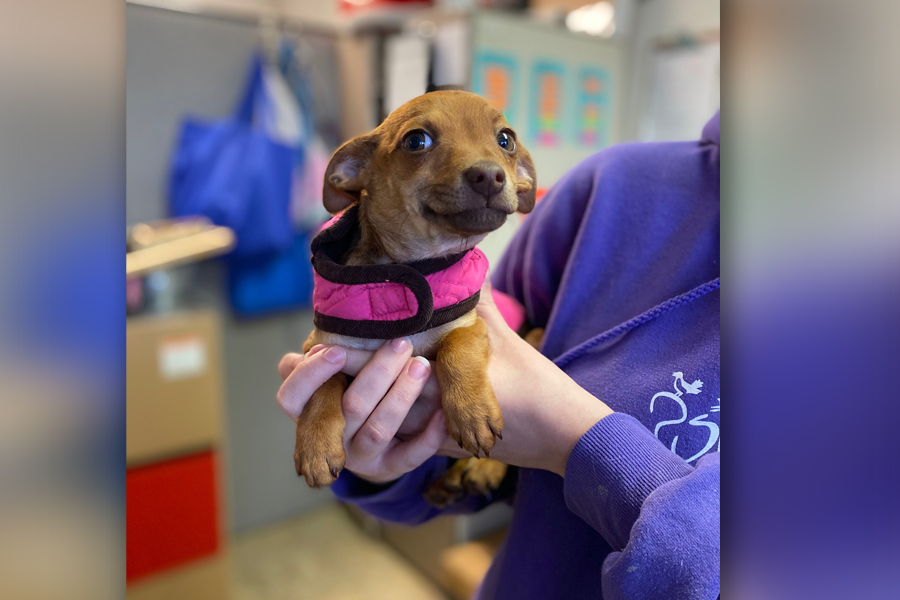
Around this time last year, we heard about two litters of puppies and a mother dog, all found outside in freezing temperatures. Some of the puppies were so cold their temperatures didn’t register. It was clear they wouldn’t have survived much longer. Because so many puppies were found at once, the small rescue that found the group asked SPCA Wake for help. The rescue kept one litter and we took in the mother dog and her litter of eight puppies.
Their story is not unique. Many people may not realize low temperatures aren't just dangerous for humans. Cats and dogs are also susceptible to frostbite and hypothermia, so as the temperatures drop into the 20s in the following days, it's important to keep pet safety in mind.
“A general rule is if it’s too cold for you, it’s too cold for your pets,” says SPCA Wake Staff Veterinarian Dr. Alice Hunsucker.
The best way to protect your pet from winter weather is to bring him/her indoors, taking dogs outside for short trips to relieve themselves.
“This isn’t just about us not wanting these animals to be uncomfortable. There are health problems these pets can face when they are left out in these near freezing temperatures. Just like humans, animals can suffer from hypothermia and frostbite or freeze to death. That’s what we don’t want to happen,” added Dr. Hunsucker.
Here are a few things to remember to help pets stay safe during winter weather:
- If bringing a pet inside is not a possibility, make sure they have shelter with warm, dry bedding. The shelter should block the wind and be off the ground a bit. Adding hay helps with insulation.
- As always, your pet needs access to fresh water. In the winter, this means changing the water frequently or using a pet-safe, heated water bowl to keep the water from freezing. Licking frozen-over water will not keep a pet properly hydrated.
- When dogs come back inside after a walk, be sure to wipe their paws. Salt and other chemicals used to treat roads can burn paw pads and be harmful if ingested.
- Raleigh law requires that animals have food, water and shelter. If you see an animal you believe does not have these essentials or may be in great danger, please contact your local Animal Control agency.
North Carolina may not see feet of snow each winter, but these temperatures are not to be taken lightly. Steps should be taken to ensure pets’ health and safety as the temperatures drop.

